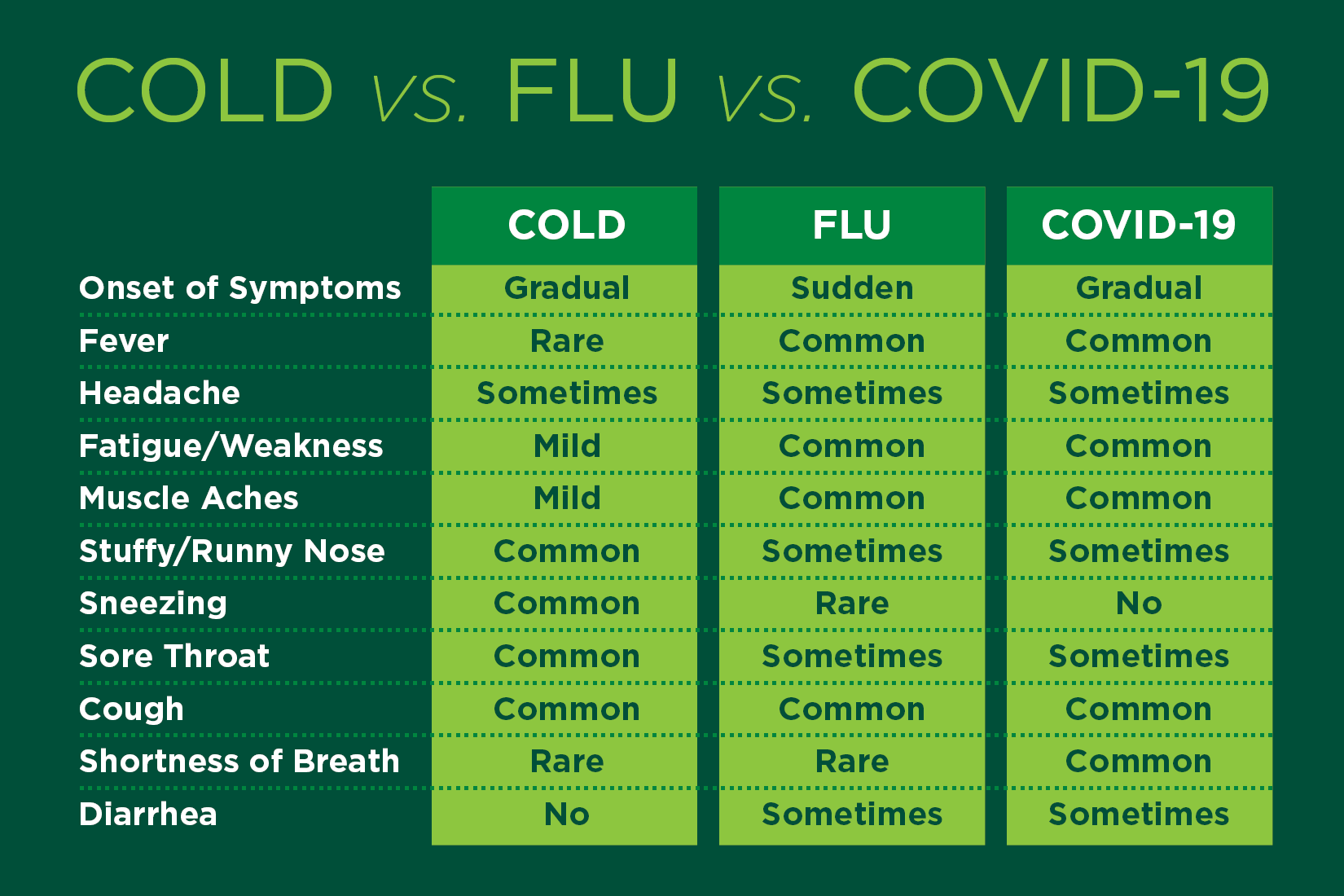How to tell cold and flu symptoms apart
You can feel it coming on. As you grab another tissue to stifle yet another sneeze, your head is pounding, your throat feels dry and scratchy, and your nasal passages are closing in, making you sound and feel like a beached whale. But is it a cold or the flu? How can you tell?
“Even though the flu and the common cold share a lot of symptoms, there are differences because they are caused by two different viruses,” explained Sandra Campbell, Pharm D., director of the MSU Health Care Pharmacy. “The onset of influenza is very sudden, whereas a cold tends to develop more gradually.”
While the common cold can make one feel pretty miserable, the flu is generally worse. According to Campbell, symptoms of influenza typically include fever, chills, muscle or body aches, headaches and fatigue. A sore throat, cough and nasal congestion can sometimes also occur but are less common with the flu. On the other hand, the most common cold symptoms include stuffy or runny nose, sneezing and sore throat.
Colds generally do not result in any serious health problems. Most people who get influenza will also fully recover, but some, particularly the elderly or those with medical pre-conditions, can develop serious complications, such as pneumonia or inflammation of the heart, or even death.
Given the fact that we continue to live in the midst of a pandemic further adds to the confusion, since many COVID-19 symptoms are also similar to those of the cold and flu.
“If you’re not sure what your symptoms indicate, it’s best to exercise caution and always get tested (for COVID-19),” Campbell said.

When in doubt get tested
MSU Health Care in partnership with Sparrow Health System provides additional high-quality COVID-19 PCR testing. This highly sensitive test can determine if your illness is COVID-19, influenza or RSV with results in 24 to 48 hours. To learn more, visit https://healthcare.msu.edu/COVID-19/covid-testing.aspx.
The MSU Health Care Pharmacy offers a complete inventory of over-the-counter cold and flu medicines, including: fever-reducing medications such as Tylenol and acetaminophen; nasal sprays like Flonase and oral antihistamines (Benadryl, Claritin, etc.) for nasal congestion and runny nose; and chest congestion products such as Robitussin, Mucinex and cough drops.
Free delivery of OTC with prescriptions
With the exception of pseudoephedrine products which must be picked up in person by law, the MSU Health Care Pharmacy offers free, next-day delivery on campus and within a 30-mile radius. The MSU Health Care Pharmacy is located at 4660 South Hagadorn Road, on the east side of campus close to Hubbard Hall.
“Our pharmacists are very experienced with years of training so they are experts when it comes to over-the-counter products,” said Campbell. “If you have any questions, it’s wise to reach out to a pharmacist, especially here at Michigan State. Not only do we offer a wide selection of products, but we also go above and beyond to make sure that customers will not experience any side effects or drug interactions.”
